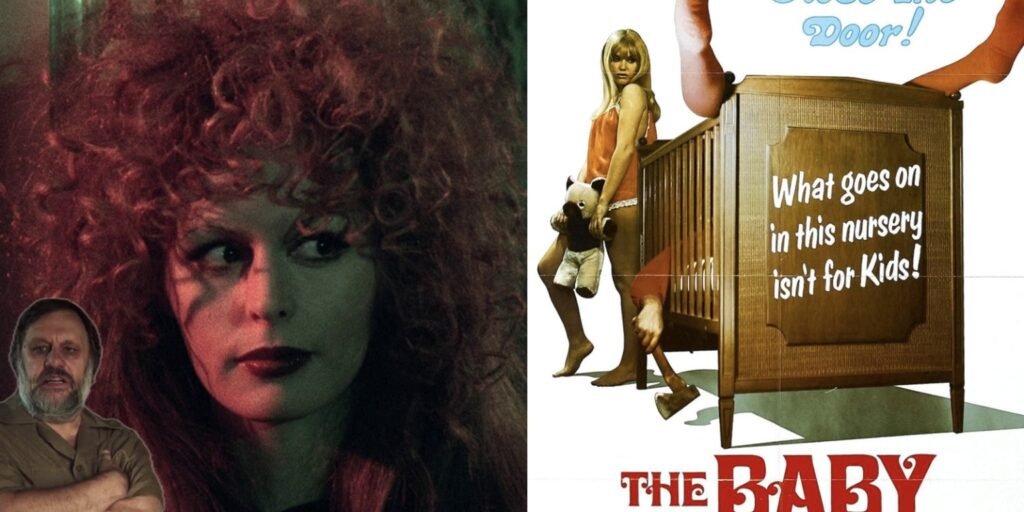This roundup dives into six wildly totally different movies, from quirky documentaries to offbeat comedies and eerie thrillers, every with its personal distinct vibe, fashion, and story.
You may already be conversant in “bronies” – aka, the surprisingly massive legion of grownup males obsessive about a up to date retread of the cartoon My Little Pony. This documentary explores that lurid subject, and it provides a reasonably sympathetic view into their identification with a universe created for 5-year-old ladies. Bronies has stable manufacturing values, nevertheless it’s hampered by the truth that it was produced by the creator and a number of other voice actors from My Little Pony – they see solely the optimistic features of their followers’ obsession, and the documentary by no means actually addresses the darkness that clearly lurks simply beneath the floor. Nonetheless, Bronies is an efficient start line for these inquisitive about this unusual cultural subsect.
This totally loopy film is likely one of the most politically-incorrect I’ve ever seen: a social employee investigates a household’s emotional, bodily, and sexual abuse of the mentally-impaired grown son that they deal with like an enormous man-baby. It’s truly fairly fascinating from a (very darkish) symbolic perspective, and cleverly constructed, because the assumed roles get switched within the finale, with the hero turning into a murderous villain and vice-versa. That ending is a highpoint, reaching gloriously outrageous ranges of absurdity. Sadly, the remainder of the film is glacially paced, poorly shot, and customarily form of boring. Extra admirable than pleasing, which is odd given the ridiculous subject material.
Not the 90s thriller or 2024 remake, however an uncommon and forgotten 80s comedy about an eccentric household of lunatics. This pervasively unusual movie is slow-going, however there are laughs and even some sudden pathos in the event you stick round. Definitely not good by any means, Tornado virtually flaunts its narrative shortcomings and normal irreverence (the “tornado” of the movie’s title is barely related to the proceedings). Nonetheless, there are memorable performances (the at all times insane Crispin Glover is a number of enjoyable) and a terrific William Burroughs cameo that options certainly one of my all-time favourite traces of dialogue (“Jim acquired kicked within the head by a horse again in February. Went round killing horses for some time. Then he ate the insides of a clock and he died.”). I really feel like Wes Anderson may remake this movie right into a basic.
That is so really terrible and I loved it so very, very a lot. A patently ludicrous cult thriller about Satan worship and human sacrifice through which Martin Sheen screams lots, The Believers occupies an odd area between camp and grim mean-spiritedness (the opening scene appears particularly designed to have traumatically scarred me as a baby, which is precisely what it did). Properly-directed by a slumming John Schlesinger, who retains the tempo transferring and employs a talented visible contact, The Believers is to Rosemary’s Child or The Omen what microwave pizza is to a contemporary pie – clearly inferior, however nonetheless oddly satisfying. It’s actually by no means boring and, regardless of itself, it’s truly fairly creepy at instances (I’m referring to each The Believers and microwave pizza right here). Price it alone for a finale through which Sheen saves his thong-wearing son from tribal sacrifice.
I’m actually glad this exists, presumably greater than I truly loved watching it. The Pervert’s Information is actually a filmed lecture on cinematic ideology, as given by renegade cultural theorist Slavoj Zizek (kind of the Frank Zappa of cultural theorists, if you’ll). Zizek’s observations are strongest when he attaches them to particular movies, and these interpretations are usually fascinating and enlightening. Sadly, his broader theories, filtered by way of obtuse tutorial language (in addition to his personal uncommon vocabulary and dialect), really feel too theoretical, or like easy truisms shrouded in cryptic language. However the movie is well-mounted, with Zizek inhabiting dreamily-realized tableaus from the very movies he explores. I’m glad there are motion pictures like this one and the great Room 237 that rip cinematic principle off the textbook web page and thrust it into the very theaters from which it spawned.
I saved pondering Kafka throughout this indie existential drama, then found afterwards that it’s truly primarily based on an early Dostoyevsky novella. Jesse Eisenberg is a hapless employee with a dehumanizing job in some bleak dystopian society (maybe Dostoyevsky’s novella was primarily based on my life…) who begins to lose his tenuous sanity when an enthralling doppelganger enters his life and begins to realize the whole lot he needs. The Double is small in scale and never notably deep or scary, however its well-polished black humor makes it value catching. Directed by comic Richard Ayoade, it’s flush with unexpectedly humorous bits and finely-tuned comedic performances from the supporting forged. Borrowing from the visible themes of early Lynch and Cronenberg (Eisenberg’s workplace is fitted with weird retrograde know-how) and scored to Japanese pop music, The Double is an endearing oddity.
